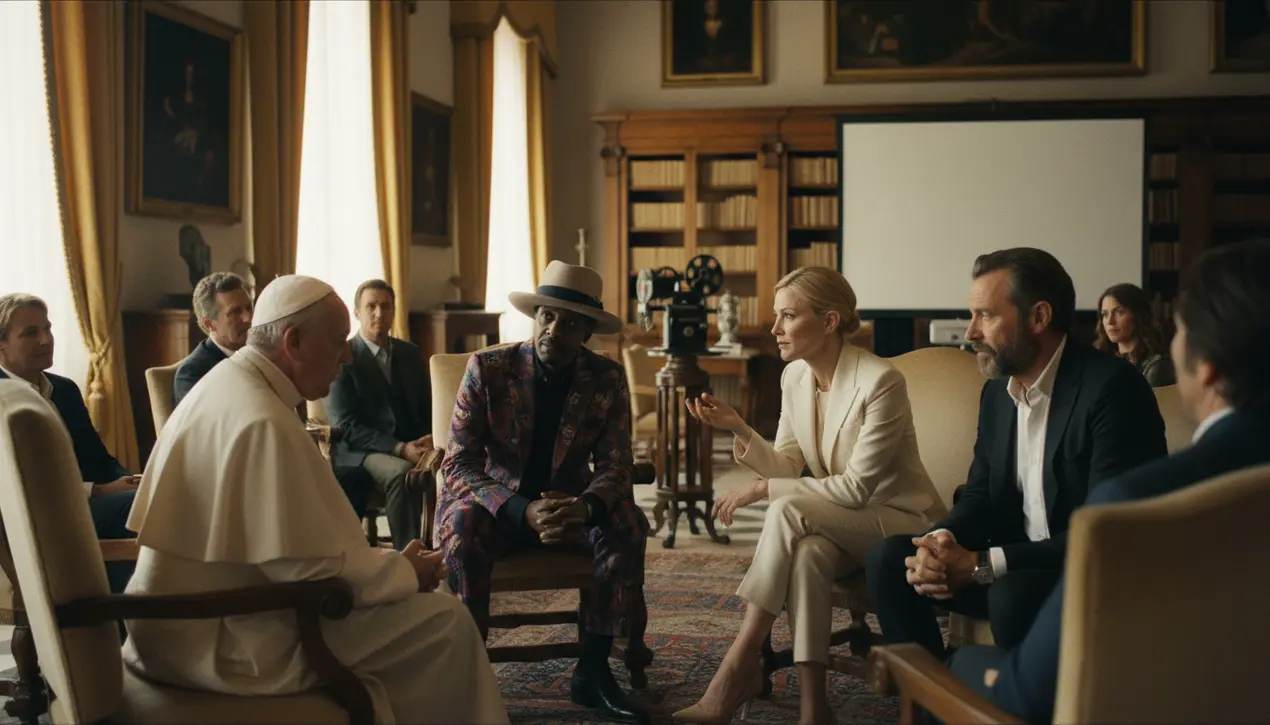
Entertainmentcelebrities
Pope Francis meets Hollywood stars at Vatican cinema event.
AM
Amanda Lewis
4 hours ago7 min read1 comments
The hallowed halls of the Vatican, more accustomed to the rustle of clerical vestments and the murmur of prayer, recently echoed with the distinct cadence of Hollywood glamour as Pope Francis convened a singular gathering for global cinema, drawing an eclectic constellation of stars including the chameleonic Cate Blanchett, the fiercely independent auteur Spike Lee, and the thoughtful artist-actor Viggo Mortensen. This was not a mere photo opportunity; it was a profound, symbolic convocation at the intersection of faith and film, a dialogue between the world’s oldest continuous moral authority and one of its most powerful modern storytelling mediums.The event, which could easily be mistaken for a surreal plot point in a new Sorrentino film, underscores a long, albeit sometimes fraught, relationship between the Catholic Church and the silver screen, from the early condemnations of the Hays Code era to the more recent, nuanced engagements with filmmakers who grapple with spiritual themes. For a pontiff who has consistently championed a 'church of the poor and for the poor,' the invitation to these particular artists is deeply telling.Blanchett, whose filmography is a masterclass in exploring the complexities of power and morality, from her regal turn in 'Elizabeth' to the orchestral genius of 'Tár'; Lee, a filmmaker whose entire career is a blistering, unflinching sermon on social justice, racial inequality, and urban life; and Mortensen, an actor known for his quiet intensity and roles that often explore the search for meaning beyond the material world—each represents a facet of cinema that can challenge, provoke, and ultimately elevate the human spirit. This meeting is a strategic move by the Vatican’s Dicastery for Culture and Education, signaling a desire not to censure but to converse, to find common ground in the shared mission of speaking to the human condition.One can draw a direct line from Pope John Paul II's establishment of the 'Film Festival of Spiritualité' to this moment, but Francis’s approach feels less like an endorsement and more like an open-handed invitation to collaboration. The potential consequences are fascinating: could this lead to more direct partnerships on projects addressing migration, ecological crisis, or economic disparity, themes central to this papacy? Or is it a softer form of diplomacy, an attempt to subtly influence the moral compass of a global industry? Expert commentary from within film studies suggests this is part of a broader recognition of narrative power, where the homily from the pulpit competes with the narrative from the screen for cultural relevance.The analytical insight here is that the Vatican, under Francis, is astutely acknowledging that to reach a secular, globalized audience, it must engage with the secular cathedrals where they congregate: the cinema and the streaming platform. This event was not about blessing Hollywood; it was a strategic summit on the future of human storytelling, and its ripples will likely be felt in the films that emerge from these creators, perhaps infused with a new, more profound sense of purpose and a deeper inquiry into the soul of our time.
#Pope Francis
#Vatican
#Cate Blanchett
#Spike Lee
#Viggo Mortensen
#global cinema
#featured
Stay Informed. Act Smarter.
Get weekly highlights, major headlines, and expert insights — then put your knowledge to work in our live prediction markets.
Related News
Comments
Loading comments...
© 2025 Outpoll Service LTD. All rights reserved.